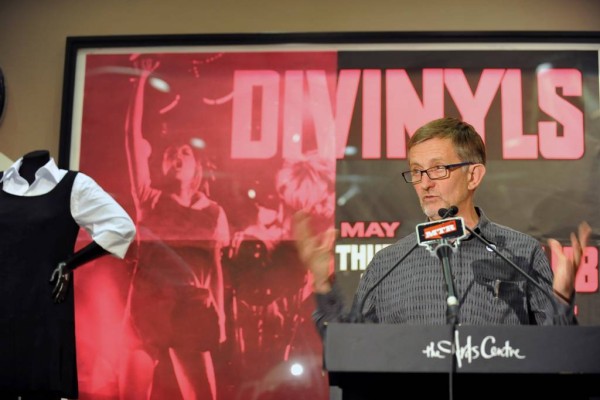The grassroots rebellion over venues this year changed the relationship of Victoria’s music industry with the Government forever.
The grassroots rebellion over venues this year changed the relationship of Victoria’s music industry with the Government forever. The movement brought up new and savvy leaders who saw the “big picture” and whom the Government could work with. The new relationship led directly to Premier Brumby and outgoing Arts Minister Peter Batchelor battling it out during Cabinet budget meetings to provide $24 million-plus to the contemporary music sector when hospitals and roads and mental health are arguably seen as having a greater priority.
The $24 million package is the Government’s way to open up opportunities for new talent, and make the industry function more professionally. The live sector now deals with a Liquor Licensing head who comes from a Small Business background and looks at venue problems on a case-by-case basis. The “Agent of Change” rule, to help venues and residents get on better, should be in place in the first half of 2011.
Peter Batchelor was Arts Minister for the eleven of his 21 years in Parliament. An arts and music fan (and a regular attendee of the Port Fairy Festival) he is leaving after this election as his partner is retiring. Batchelor cites his proudest achievement was to set up the Wheeler Centre for literary collaborations and networking. The Music HQ idea, in Labor’s arts policy, is based on that.
This is an all-encompassing, and might I say impressive package. How long did it take you to put it together?
Well this year there were quite a few people out on the street giving us a message, and we were listening to it. We set up Music Victoria, and since then there was a lot of dialogue (with the music industry) about what was important and what would assist. So while we were looking at the Live Music Accord, we were also looking at the broader policies. These come from a belief that culture generally is important, and it matters to us. An example of this cultural asset to our community is the contemporary music scene and we need to be more caring for it. We’re looking at it from the perspective of helping the artists who’ve got the talent and want to turn that into a more enduring contribution — and earn a buck out of it on the way through.
Speaking of “earning a buck”, most musicians would be beneath the poverty line from the income they make just from their art. What can the Government do make it better?
A lot of people do extremely well out of music, either by writing or singing or playing guitar or as promoters and event managers. But there’s still a lot climbing up the ladder of success. Not all endeavors are successful although you aspire to be. What we’re trying to do with these initiatives is to identify that the industry is more than who sells the most CDs, and that there’s a lot more going on behind. This idea of the Australian Music HQ is to provide an institutional framework around which people can come together and learn from each other. We’ve been building elements of this within the government. But after the listening process with the industry this year, we realized there are successful models we could learn from. Like the Wheeler Centre for the literature area, which brings together independent organizations — we have poets, writing bodies, festival organizers — to provide collaborative and cooperative opportunities, to fast track the educational process and of not having to reinvent the wheel. That’s our model for the contemporary music area. We don’t want to be deciding what’s going to be successful, that’s got to come from the musicians and songwriters, and technicians and engineers. We don’t want to take away their independence and creativity but let the business side run more efficiently.
$1 million for Music Victoria, that certainly sends a glaring message that there needs to be a liaison body between the Government and music industry. Would you agree with that?
I do. The Government wants to help the industry get organized in a way that suits it. If it can develop a professional music body which can provide its diverse views and needs and aspirations, then it makes it easier for the industry and it certainly makes it easier for the Government to understand it. I think that’s demonstrated by this year of listening. We haven’t invented these things. We spoke to people. What will work? Mentoring? People have said how terrific it was through FreezaCentral. I was impressed by a comment that Monique Brumby made (at the launch of the music package), that it’s not activity that makes the headlines. But it gives practical and tangible assistance to emerging artists and also a way for someone who’s made it, or on their way, to help their fellow citizens.
In eight months, the Brumby government went from arch-devils to saints, were you all rattled when 20,000 people walked in protest?
I wouldn’t use that word phrase. As individuals a lot of us in Government are music fans, we’re not operating in a vacuum. For instance I go out to the Northcote Social Club with my family because we like what goes on there. We were concerned that the connection between alcohol and violence was mixed up with promoting live music and had to be fixed up before we spoke to the industry. There’s also the pragmatic thing that there was an industry there, there was money to be made and jobs to be provided and careers to be developed. We have been listening, and the listening and discussing process itself is not newsworthy. But it helped us argue for it within Government.
Has the Government felt in the past that the music industry has not worked with one voice, and had to deal with too many disparate views?
No doubt about that. The industry itself has not acted cohesively. That’s why the first step to get to this announcement was that it’d be much more helpful if the industry was professionalised, able to prioritise and target its requests. So the announcement of Music Victoria and its funding support is highly crucial.
Are lobby groups from other sectors more organized than us?
They’ve at it for a longer period of time, they know how it works. But I’ve been impressed with how quickly Music Victoria has been able to identify issues. They’ve had to establish a new body from zero, but they’ve also been able to deliver around the negotiating table.
Peter Batchelor is the Minister for Energy & Resources and the Arts in the Brumby Labor Government.

